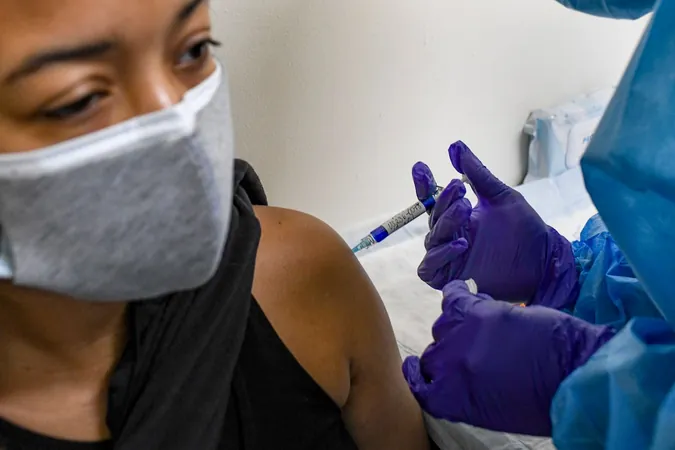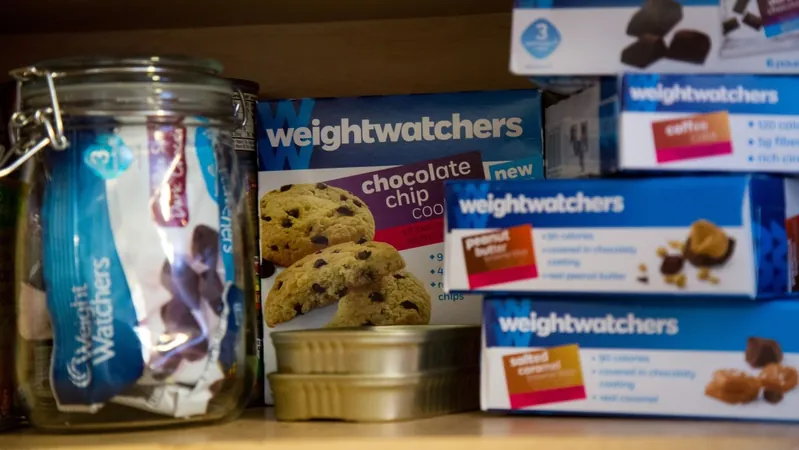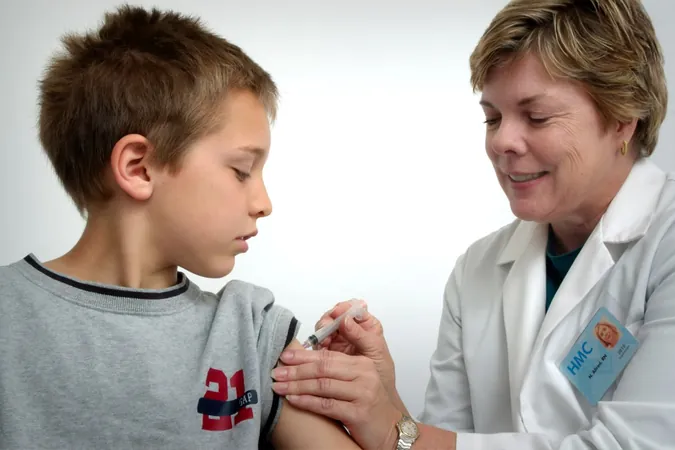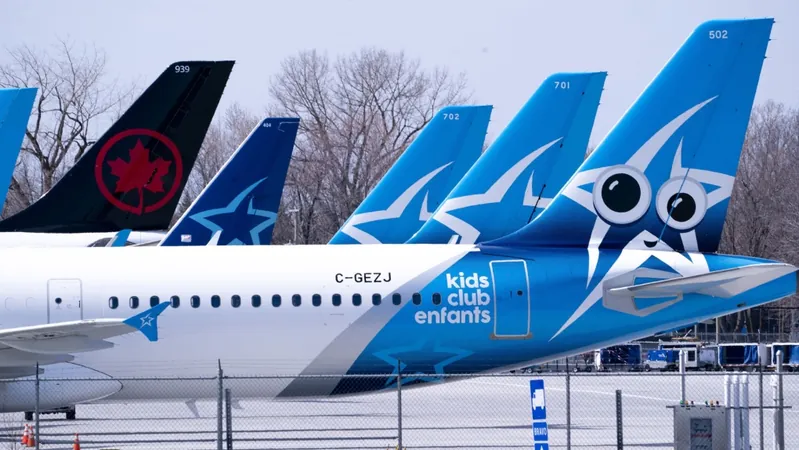
Vaccine Manufacturer Halts Production at Montreal Plant Amidst Falling Demand for COVID Shots
2024-10-06
Author: Emily
Vaccine Manufacturer Halts Production at Montreal Plant Amidst Falling Demand for COVID Shots
In a striking turn of events, Novavax Inc., the vaccine manufacturer initially partnered with Canada during the COVID-19 pandemic, has announced it will not be producing COVID-19 vaccines at the Montreal Biologics Manufacturing Centre (BMC) for the upcoming winter season. This decision has left the federal government scrambling as it reassesses its vaccine supply strategy for Canadians.
Back in February 2021, Prime Minister Justin Trudeau had high hopes when he unveiled plans for a new plant aimed at bolstering Canada’s vaccine manufacturing capacity, which was essential during the unprecedented health crisis. Fast forward three years, and the BMC, built with nearly $130 million in federal funding, stands largely idle, as Novavax pivots away from local production. Instead, provinces are being directed to procure Novavax doses manufactured in India.
The BMC's future is now in jeopardy, facing the daunting task of attracting new clients after years spent preparing for Novavax production. The centre, comprising 55,000 square feet of space, has no other vaccine or biologic production underway, raising concerns about its operational viability. Industry experts warn about the challenge of maintaining the facility in a wake-of-pandemic world where demand for annual COVID boosters has plummeted.
Andrew Casey, CEO of BIOTECanada, highlights the difficult question of how to effectively utilize public health facilities in times of low demand. "What do you do with these facilities between now and when we next need them for that 9-1-1 response?” he asks, stressing the strategic need to avoid underutilization of such critical infrastructure.
Despite current setbacks, many in the industry believe the BMC represents a significant step forward in enhancing Canada’s biotechnology framework. Tony D’Amore, a seasoned biotech consultant, supports this sentiment, emphasizing that the COVID-19 crisis underscored the need for domestic production capabilities.
Isabelle Caron, the BMC's president, pointed out that typical startups often face lengthy client negotiations, assuring that they are diligently pursuing numerous prospects. Although the plant is currently devoid of vaccine production, it does provide unspecified contract services to two unnamed clients under confidentiality agreements.
Compounding the uncertainty is Novavax’s shaky operational status. Just this past June, the federal government and Novavax renegotiated an advanced purchase agreement, with Ottawa agreeing to pay nearly $350 million to cancel the majority of pre-ordered shots. Regulatory approval remains a critical factor, and the existence of the contract hinges on Novavax's ability to secure this approval by the end of 2024.
With the landscape of COVID-19 vaccinations rapidly evolving and competitors like Pfizer-BioNTech and Moderna continuing to dominate the market, the pressure is mounting. Observers are concerned that without a clear path to new business opportunities, the BMC might struggle to retain its skilled workforce.
Alan Bernstein, a member of Canada’s COVID-19 vaccine task force, expressed the sentiment that maintaining domestic production capacity is imperative. He urged the BMC to accelerate efforts to attract diverse contract work to safeguard its future.
As the world moves forward, the critical question looms: How will Canada navigate the complexities of pandemic preparedness while ensuring valuable resources for public health remain active and economically viable? Stay tuned, as the answers unfold in the coming months, redefining the future of vaccine production in Canada.









 Brasil (PT)
Brasil (PT)
 Canada (EN)
Canada (EN)
 Chile (ES)
Chile (ES)
 España (ES)
España (ES)
 France (FR)
France (FR)
 Hong Kong (EN)
Hong Kong (EN)
 Italia (IT)
Italia (IT)
 日本 (JA)
日本 (JA)
 Magyarország (HU)
Magyarország (HU)
 Norge (NO)
Norge (NO)
 Polska (PL)
Polska (PL)
 Schweiz (DE)
Schweiz (DE)
 Singapore (EN)
Singapore (EN)
 Sverige (SV)
Sverige (SV)
 Suomi (FI)
Suomi (FI)
 Türkiye (TR)
Türkiye (TR)